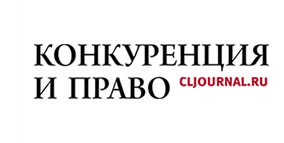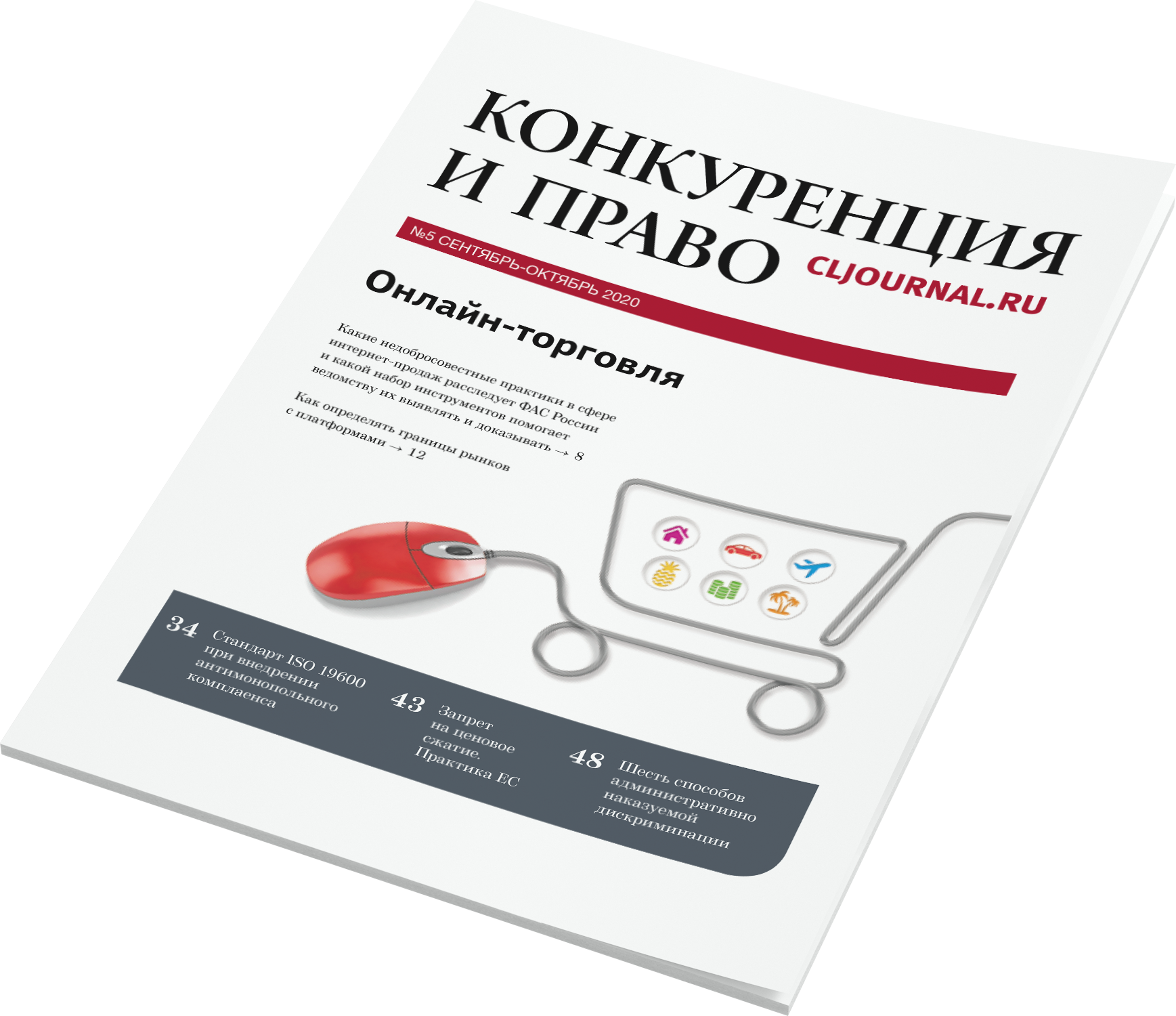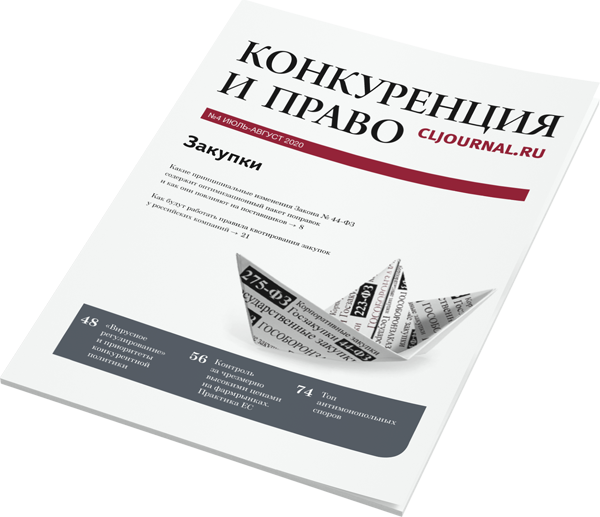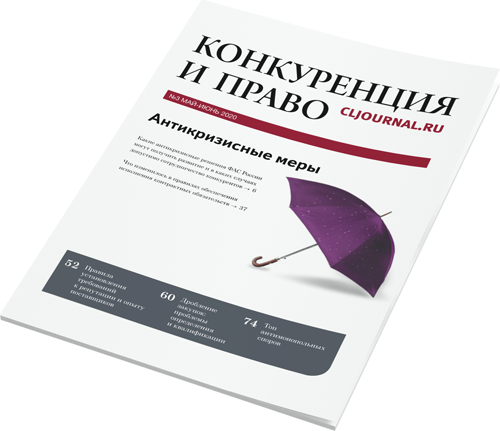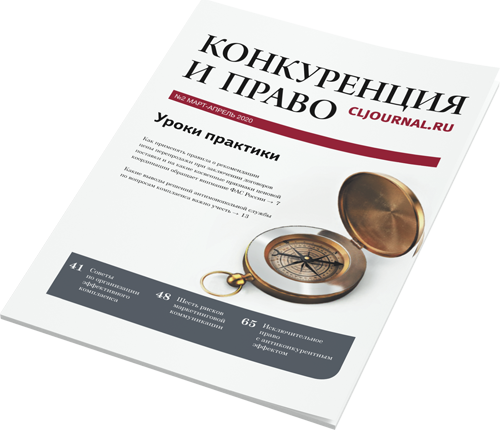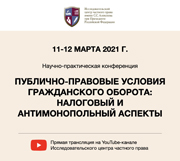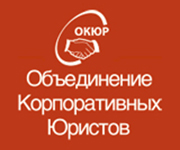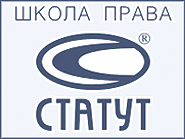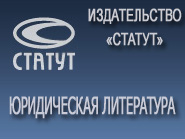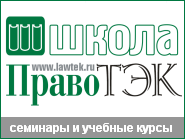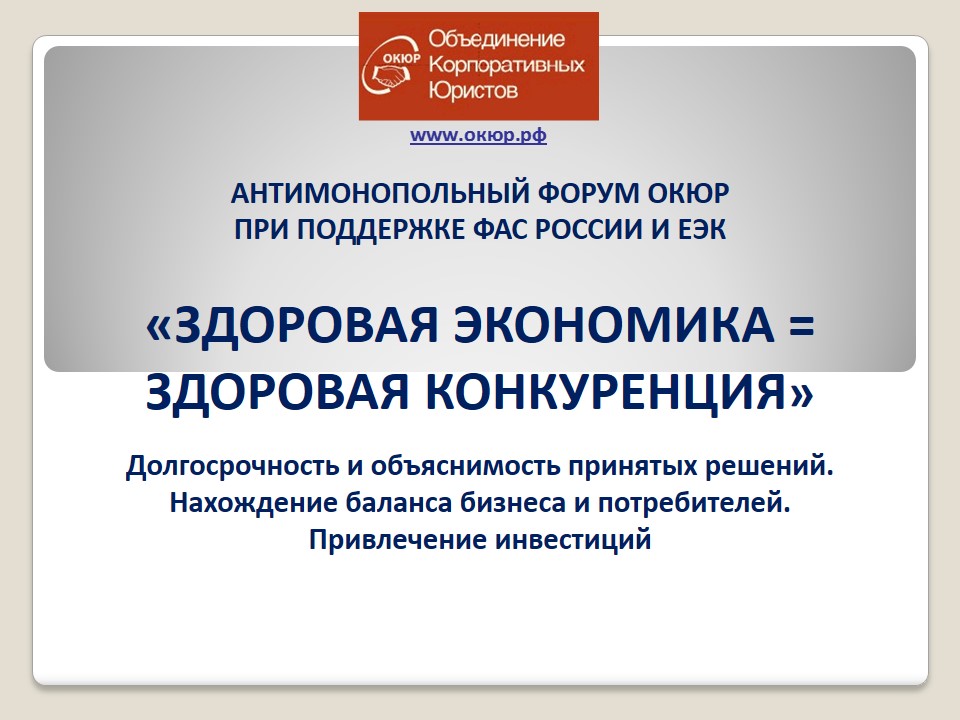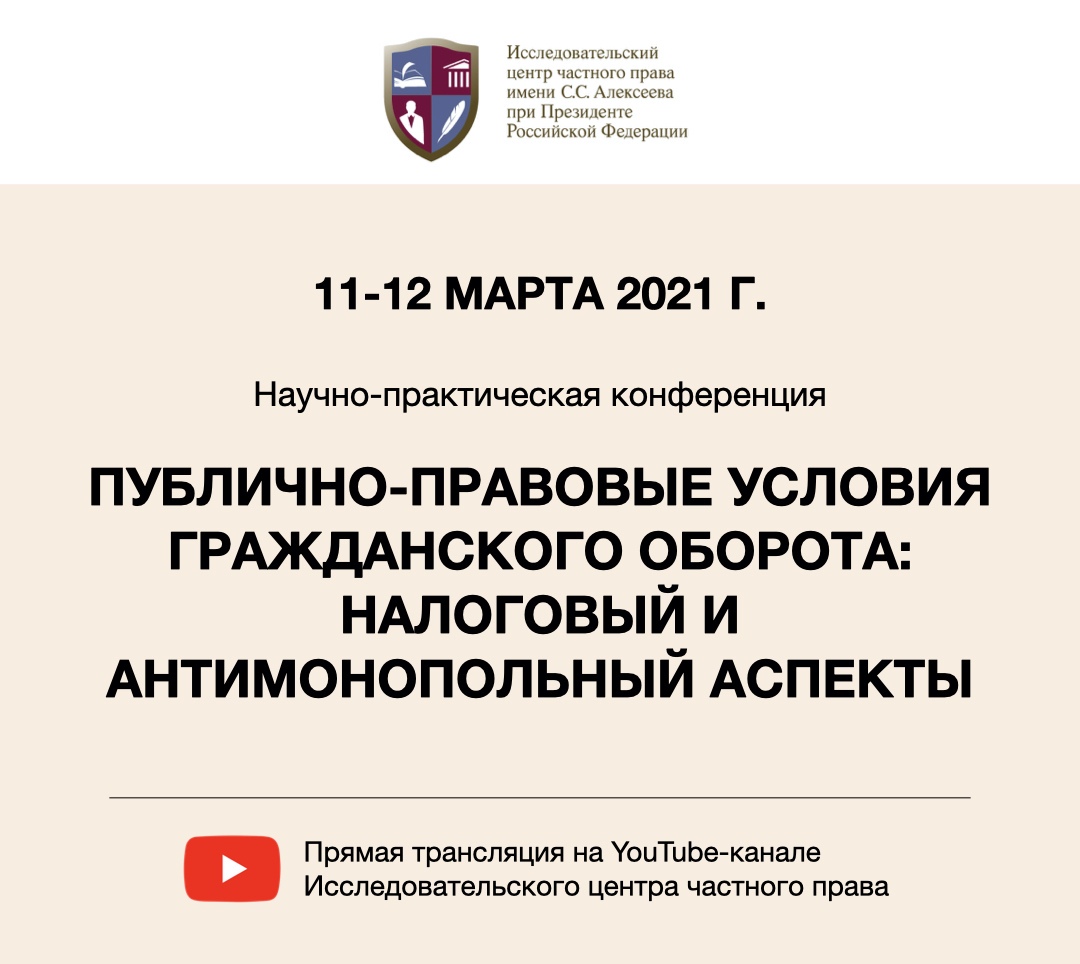|
||||||
 Published in Competition and
Law journal, Issue 5, 2019
Elena Sokolovskaya, Chief Expert of Competition and Law journal The FAS of Russia has put before the State Duma a much-anticipated draft law on antitrust compliance1. The current version of it contains amendments only to Federal Law No. 135-FZ “On the protection of competition” dated 26 July 2006, and the draft itself has the nature of a framework. Once they are finally adopted the new rules will most likely require specification at the level of subordinate legislation adopted by the regulator, for example, in the form of clarifications by the FAS of Russia’s Presidium regarding the criteria used to assess the efficiency of a system for preventing risks. The draft law proposes that the following should be codified:
The draft law leaves it to the discretion of companies to decide whether they implement a mechanism for preventing antitrust risks. It provides for the possibility of agreeing with the FAS of Russia, within 30 days, internal documents a business entity has drawn up, so as to check that the compliance system corresponds to competition legislation. Moreover, the explanatory note states that the company may not be held to have violated antitrust legislation if it has acted within the scope of an internal regulation which sets up the system and was previously approved by the regulator. The open list of requirements for the content of a compliance system for which the draft law provides allows for other elements to be introduced into the system which meet the demands of the business entity in question. Thus, the idea of e-compliance is gaining momentum against a backdrop of the digitalisation of economics and of business processes. It implies that new compliance tools, in addition to traditional methods of risk identification, will be implemented to prevent breaches of antitrust legislation which are committed, among other things, with the use of high-end (digital) technologies. A few issues still remain open. A compliance system does not boil down to a single internal regulation or a set of such documents, but features a whole range of measures. These, specifically, include an internal control mechanism designed to build efficient interaction of a company’s structural divisions so as to prevent antitrust risks. The draft law does not clarify whether the FAS of Russia makes any claims if a business entity has acted within the framework of its internal regulation which was approved and still committed an offence, i.e. where the compliance system which was examined and approved by the antitrust agency failed. Unfortunately, amendments to the Russian Code of Administrative Offences which were included in the original version of the draft law have been excluded from it. These included legal provisions regarding the mitigation of administrative liability for companies where a compliance system has been introduced and was functioning efficiently. Meanwhile, the amendments would have encouraged business entities to introduce risk-prevention mechanisms. We hope that the draft law will ultimately be adopted and it will become clear to which minimum requirements a compliance system should correspond. This will serve as an additional incentive to put such systems in place. ____________________ 1 Draft
Federal Law No. 789090-7 “On amending the Federal Law “On the protection of
competition”.
30 сентября 2019 г.
|
|

